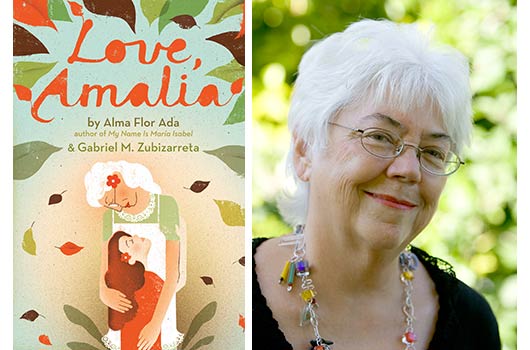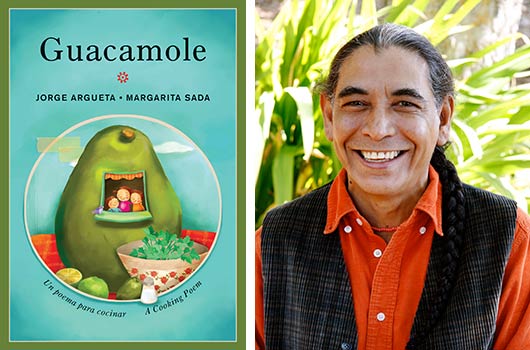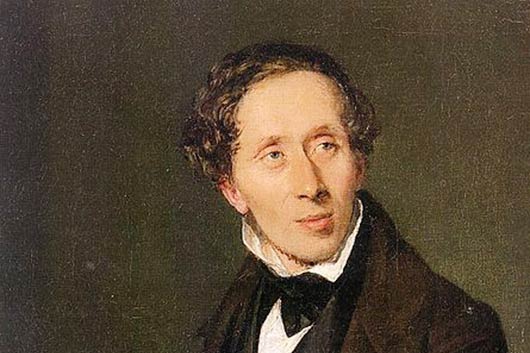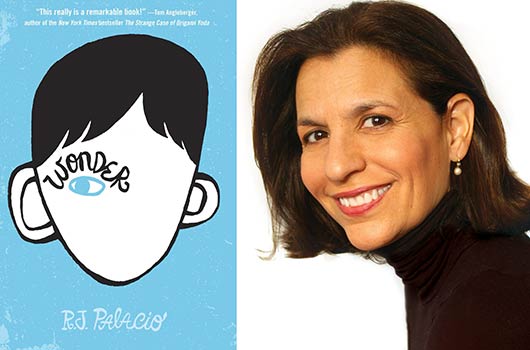
This is how August Pullman, the main character in R.J. Palacio’s best-selling middle grade novel WONDER, describes himself on the first page of the book: “I won’t describe what I look like. Whatever you’re thinking, it’s probably worse….”
You see, August Pullman was born with a facial deformity that has made his parents very protective of him and prevented them from sending him to mainstream school, choosing to homeschool him instead.
At the beginning of WONDER however, they make the extremely difficult decision to allow him to enter the 5th grade at Beecher Prep, so that Auggie can begin to lead the life of an “ordinary” kid. Auggie wants nothing more than to be treated as an ordinary child—but his new classmates can’t get past Auggie’s extraordinary face.
Told from several different points of view—including his teen sister’s and classmates’—Auggie’s face is not the only extraordinary element of this heart-wrenching and inspirational story. In a world where bullying is endemic, WONDER reminds us what it means to be human, and the importance of kindness, and courage. The book has received praise from a broad array of readers—from The New York Times, Entertainment Weekly and The Huffington Post, to authors Nicholas Sparks and Julia Alvarez, and booksellers, librarians and parents, all of whom agree that this is a novel to talk about, and share.
Read Related: A New Latina Role Model in Good Night Captain Mama
Mamiverse was fortunate enough to have the opportunity to interview this novel’s wonderful author. Here is what she shared with us:
Mamiverse: Congratulations on the marvelous success of WONDER. The book is remarkable in so many ways. What inspired you to write it?
Palacio: A very brief encounter I had with a little girl in front of an ice cream parlor, who looked like Auggie looks in the book, was the source of inspiration for Wonder. I was with my sons at the time, who were young, and their reaction, and the way I handled the situation, left me thinking—rather obsessively—about what it must be like for that child, for her family. I started writing the book that very night.
Mamiverse: Throughout the book, Auggie does his best to fit in with the rest of the children in his school, despite his obvious physical difference. Often, his struggles feel not much different from those that many children his age face. Did you intend to make him relatable to all children, or to send a universal message?
Palacio: Absolutely. The whole intent of the book really is to have kids relate to Auggie so they can feel what it would be like to walk in his shoes, and then Via’s and Jack’s. While must of us don’t know what it’s like to experience Auggie’s reality, we do (most of us) know what it’s like to feel like the outsider at school sometimes, or socially awkward, or to have friends abandon us in middle school. We all know what’s like to have accidentally overheard something we wish we hadn’t, or to have felt cowed by peer pressure to act a certain way although it may be different from what we really wanted to do. And what mother doesn’t know what it’s like to stay up all night holding vigil over a sick child? These are universal experiences that bind us together as human beings, and that’s why the themes of the book are so relatable to so many people, I think.
Mamiverse: The story is told from different perspectives, which provides readers with interesting, and at times, eye-opening insight into Auggie’s effect on those that surround him. Why did you decide to approach the narrative that way?
Palacio: Auggie is a keen observer of the world around him, but only to a certain point. In many ways he’s quite naïve and has been sheltered a lot, so his perceptions are somewhat skewed at times. In essence, I don’t think he’s especially good at reading between the lines of what’s happening around him all the time. I wanted to be able to shed light on Via’s character and Summer and the others, especially in terms of how Auggie impacts them. They fill in the gaps of his story. Their stories also remind readers that we all have our baggage: every single one of them has some things they wish they could change in their lives. It’s all about how we deal with the cards we’re dealt, and how the circle of people around us is what helps us get through the challenges, whether you’re a kid with a facial difference or the poorest kid at a rich private school or your parents went through a bad divorce.
Mamiverse: I know that I am not alone when I declare that this book can easily crossover from an adolescent to an adult reading audience. Why do you think that so many adults have connected with Auggie’s story?
Palacio: You’re definitely not alone. They are actually publishing the book as an adult book in Great Britain, where it’s been packaged with a new cover and is set to come out in June. They liken it to The Curious Incident of the Dog in the Night-Time, which I read because my son read it in the 8th grade and recommended it. I love finding books that kids can share with parents and vice versa. I think adults have connected with the story because it really taps into our memories of middle school, and raises questions about the kinds of kids we were, or wish we had been. I don’t know anyone who doesn’t have a few regrets about things they did or said at that age. I’m not one of those people that thinks kids are necessarily mean at that age, but they can be thoughtless. As for parents reading the book, I think they relate to Isabel and Nate. They feel a parental bond with Auggie, protective of him. He’s such a brave little soul.
Mamiverse: Auggie’s family circle has a very positive and powerful presence in WONDER. Mamis will surely want to know: Did your Latina background influence how you wrote Auggie’s family in any way?
Palacio: I think very much. My parents are Colombian. I’m first generation. They adored me unconditionally and thought I could do anything I wanted to do. My mother—and yes, I called her Mami—was very involved in my emotional life. We were very close. There was a tremendous amount of affection and kissing and loving. I made Isabel Brazilian because I thought if I made her Colombian it would be too much like she was me (though she IS like me in many ways), but I felt like I had to make her Latin in some way because North American ‘mommies’ are just somewhat different than my experience of South American ‘mamis’.
Mamiverse: How did your own family react to WONDER? Did they see themselves in the book?
Palacio: Yes, because in many ways it IS our family. I’m the mom. My husband is Nate, the dad, always with a joke. He’s also the most loving dad I’ve ever known. Not a day goes by when we don’t tell our kids how much we love them. There’s much in Auggie that’s like my older son at that age, though Auggie is a composite of several children I’ve known, including a family friend on whom I based his cute mumbling and shy affect. But Auggie’s openness, his ability to forgive, his heart: is very much like my older son. And some of the things that happened in middle school had happened to the children of friends of mine in middle school.
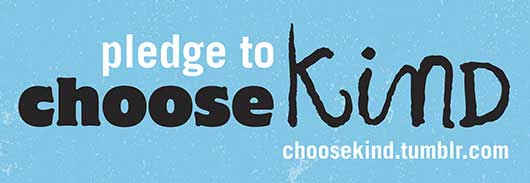
Mamiverse: Your publisher has launched an anti-bullying campaign inspired by WONDER. Can you share some information about it with our readers? Is there anything they can do to help?
Palacio: It’s called Choose Kind, and it’s a campaign to promote kindness as the antithesis of bullying. People [can visit the site and write] in their stories of how they challenged a mean kid in school, or something they did to promote kindness, or stick up for a friend. The idea is to celebrate the Summers of the world and let the Julians realize that nobody cares about them. When I talk to kids in school I tell them how when you’re a grown up looking back on middle school, it’s usually the kids who were really nice to you that you remember the most. I might remember the mean statement, but not the kid who made it, while I remember everything about the girl who sat with me when I was the new kid in class. It takes courage to be kind at that age, and the program celebrates that courage.
Mamiverse: Are you working on another book? If so, can you tell us a little about it?
Palacio: I haven’t even talked to my editor about it, but yes, I’m working on a new book. It’s not a sequel to WONDER but there are overlaps in terms of the style and the themes. It’s called That Was the River.
Mamiverse: Do you have any favorite children’s books that you would like to recommend to our mamis?
Palacio: The Little Prince is my all time favorite children’s book. It’s what my mother read to me when I was very young.
For more information about the author, and to check out a trailer for WONDER, visit: rjpalacio.com.


